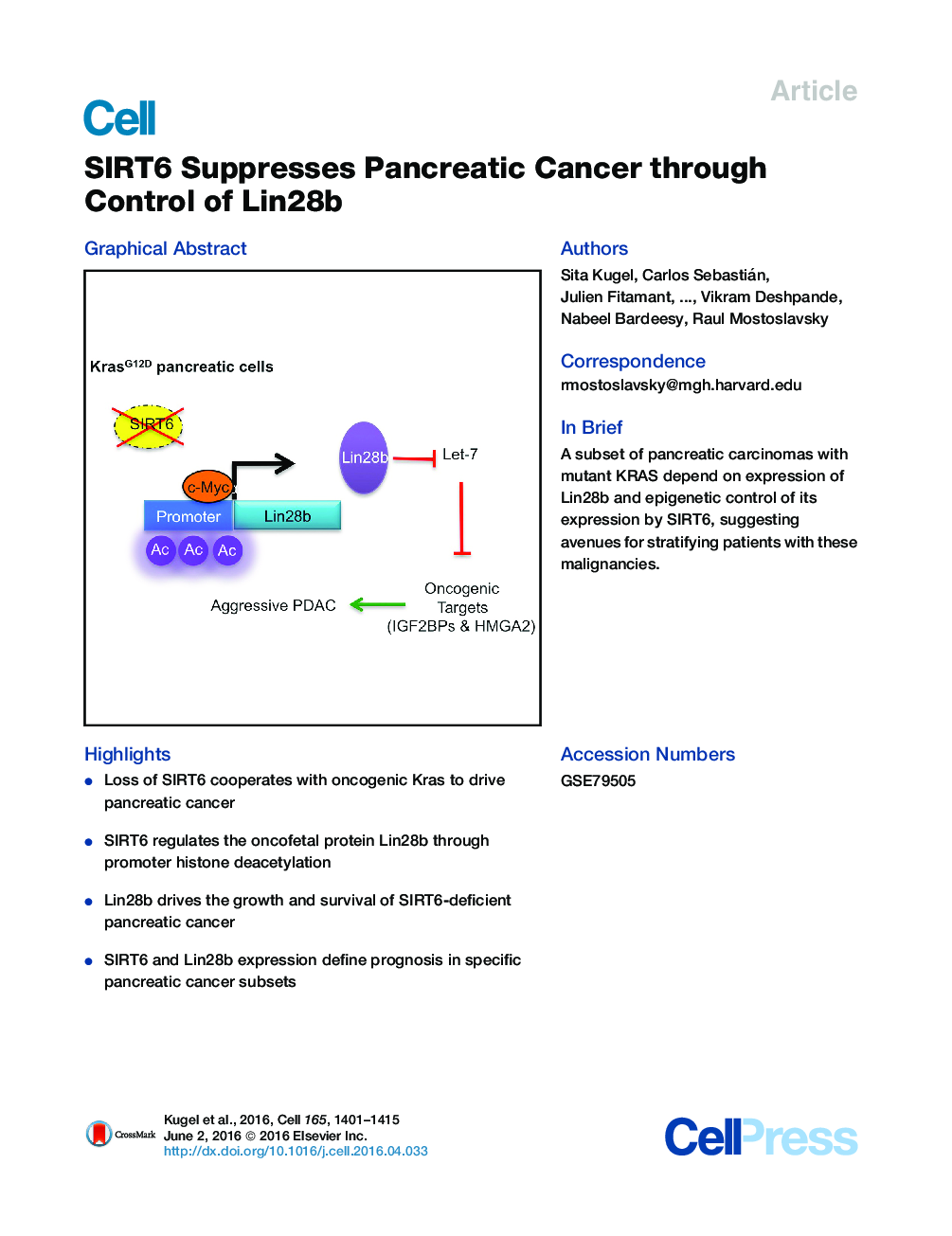| Article ID | Journal | Published Year | Pages | File Type |
|---|---|---|---|---|
| 2035031 | Cell | 2016 | 15 Pages |
•Loss of SIRT6 cooperates with oncogenic Kras to drive pancreatic cancer•SIRT6 regulates the oncofetal protein Lin28b through promoter histone deacetylation•Lin28b drives the growth and survival of SIRT6-deficient pancreatic cancer•SIRT6 and Lin28b expression define prognosis in specific pancreatic cancer subsets
SummaryChromatin remodeling proteins are frequently dysregulated in human cancer, yet little is known about how they control tumorigenesis. Here, we uncover an epigenetic program mediated by the NAD+-dependent histone deacetylase Sirtuin 6 (SIRT6) that is critical for suppression of pancreatic ductal adenocarcinoma (PDAC), one of the most lethal malignancies. SIRT6 inactivation accelerates PDAC progression and metastasis via upregulation of Lin28b, a negative regulator of the let-7 microRNA. SIRT6 loss results in histone hyperacetylation at the Lin28b promoter, Myc recruitment, and pronounced induction of Lin28b and downstream let-7 target genes, HMGA2, IGF2BP1, and IGF2BP3. This epigenetic program defines a distinct subset with a poor prognosis, representing 30%–40% of human PDAC, characterized by reduced SIRT6 expression and an exquisite dependence on Lin28b for tumor growth. Thus, we identify SIRT6 as an important PDAC tumor suppressor and uncover the Lin28b pathway as a potential therapeutic target in a molecularly defined PDAC subset.PaperClip To listen to this audio, enable JavaScript on your browser. However, you can download and play the audio by clicking on the icon belowHelp with MP3 filesOptionsDownload audio (5297 K)
Graphical AbstractFigure optionsDownload full-size imageDownload high-quality image (107 K)Download as PowerPoint slide
